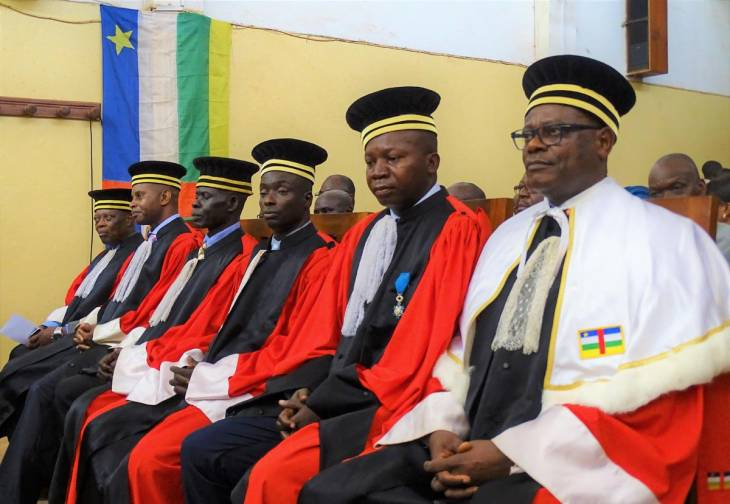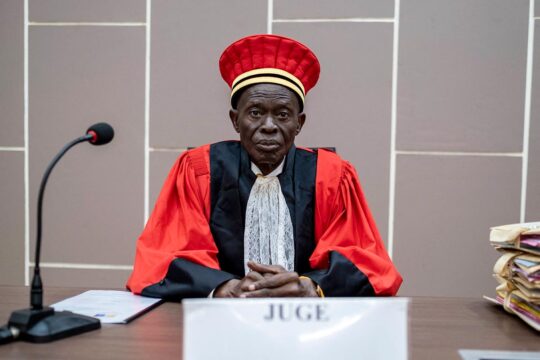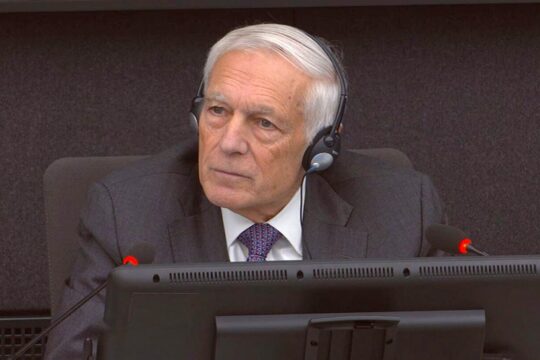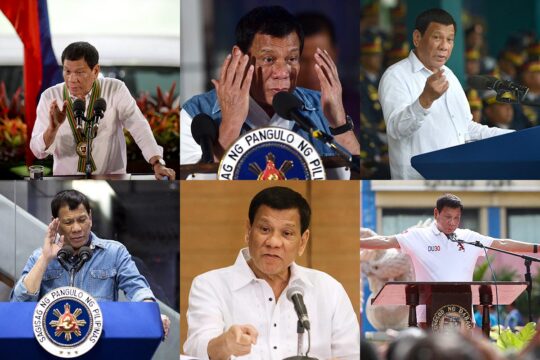The Special Criminal Court (SCC) set up to try serious crimes committed in the Central African Republic (CAR) has not yet moved to its permanent premises, but holds its inaugural session in the capital Bangui on Monday October 22. The SCC, officially created in June 2017, is a mixed or hybrid court. It is part of the Central African judicial system whilst also having support from the United Nations and several Western countries. Some international lawyers – like the Prosecutor, two of the four investigating magistrates and some of the trial judges – will work alongside their Central African counterparts at the court. Key staff are now in place, notably within the prosecution and office of the investigating judges. These judges today elect their president.
Three-pronged justice
The Central African Republic (CAR) paints an interesting picture when it comes to criminal justice for mass violence. On paper, three types of court – or levels of jurisdiction – share the task of prosecuting suspected crimes of genocide, crimes against humanity and war crimes committed in the country. The International Criminal Court (ICC) in The Hague has taken up the CAR situation and can act on crimes committed since 2002. But in 11 years of investigations the ICC has prosecuted only one person, former Congolese warlord and vice-president Jean-Pierre Bemba, who was finally acquitted on appeal in June 2018. Its investigations remain open, but its intervention will clearly be limited and symbolic. As for the SCC, it can investigate and prosecute crimes committed since January 2003. It has a five-year renewable mandate. So far, there has been no indication about its investigating strategy or the number of individuals it could try. Finally, the CAR’s ordinary courts, also known as criminal courts, can also try these crimes. They have the least resources, but are likely to end up handling the most cases. But it will be up to the SCC especially to fly the flag for strong, independent national justice – its Prosecutor, a Congolese military judge, is not answerable to any political authority – in a country where the judicial system has been decimated by decades of penury, political pressure and war.
New war crimes
The security situation is also a big challenge for this new court. The civil conflict is still ongoing and the central authorities only control a small part of the country. The court’s inaugural session comes only days after the publication of new reports from the UN mission in the CAR (MINUSCA) and Human Rights Watch (HRW) on serious crimes perpetrated recently by certain armed groups, namely summary executions that could constitute war crimes or crimes against humanity, allegedly committed in August and September in the Haute Kotto prefecture of central CAR.
According to HRW, rebels of the Seleka, one of the main warring groups, captured and executed at least nine civilians including seven women on September 6 near the town of Bria in Haute-Kotto province. Some two weeks before, at least 11 civilians were killed by the same armed group after clashes with a rival militia, according to the international NGO. “These executions and assassinations are clear war crimes, committed by combatants who feel free to kill with impunity, despite the presence of UN peacekeepers,” said HRW senior Africa researcher Lewis Mudge on October 12.
These executions and assassinations are clear war crimes, committed by combatants who feel free to kill with impunity, despite the presence of UN peacekeepers
The American NGO also says it has evidence of murders of at least eight other civilians in the same region since June, committed by anti-Balaka (self-defence militia created to counter the former Seleka coalition after it temporarily seized power in March 2013). The total number of victims could be higher, since certain families told HRW some of their relatives were still missing. The residents of nearby villages have continued to signal murders of non-armed civilians in fields around Bria, according to HRW, which says it has not been able to verify all the murder allegations because of limited access to the region and security problems.
MINUSCA warning
The UN mission MINUSCA says at least 30 people were killed and four others wounded in August and September in the same central region of the country. These crimes, many of which could constitute war crimes and crimes against humanity, can be attributed to the ex-Seleka coalition and anti-Balaka, it said in an October 15 press release after an investigation launched a week earlier. According to the UN’s Office for the Coordination of Humanitarian Affairs (OCHA), the abuses committed by these armed groups – murder, attacks on physical and mental integrity, attacks against civilians and protected sites like hospitals and schools – have forcibly displaced at least 32,000 civilians. MINUSCA says it will “spare no effort” in supporting the Central African authorities to bring the perpetrators of these crimes to justice because “impunity is the main cause of the recurrent violence in the CAR”. The scale of the challenge facing the SCC is already clear.







